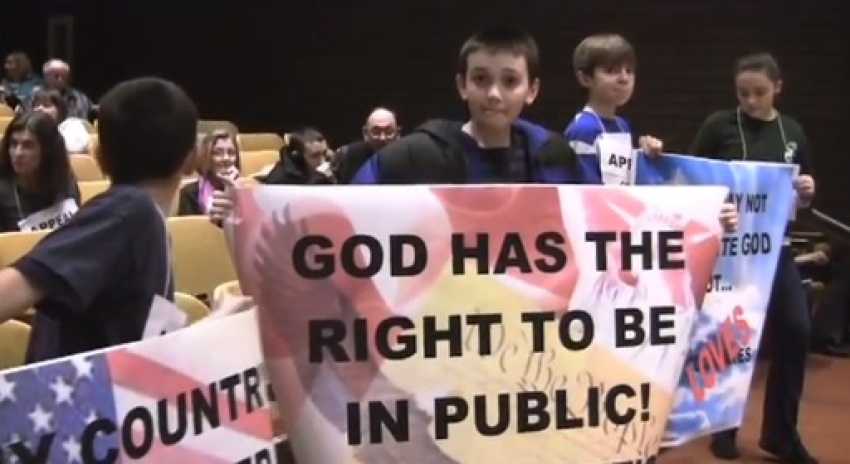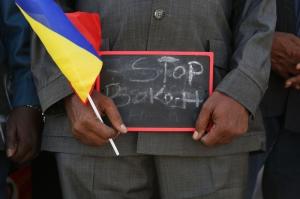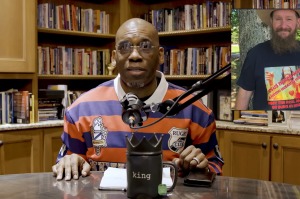Public Prayer Ban Against Christian Students Overturned by School District

A school district in Wyoming has reversed a high school principal's decision to bar students from privately praying in the school cafeteria during lunchtime after a Christian law firm threatened to take legal action if the students were prohibited from exercising their religious liberty.
On Oct. 15 a small group of students, led by the children of Pastor Marty Roark, gathered in the back of the Glendo High School cafeteria to bow their heads and pray over their lunchtime meal. The student that offered the prayer spoke only so the group could hear him and after the prayer was over, the students sat down and ate their lunch without causing any disruption.
Although the prayer was not initiated by a school employee, Principal Stanetta Twiford approached one of the students after lunch and told her that she and the other students were not allowed to pray during lunch because it was pushing their religion onto the other students.
Twiford added that if the students wanted to pray, they needed to get permission to go into the hallway or gym to do their prayer gathering out of the view of other students. The students were also told by a social studies teacher that praying in the cafeteria was a violation of church and state.
Later in the day, Twiford pulled the same student out of her class to reiterate that the students would face severe consequences if they continued to pray in the cafeteria during lunchtime.
The Roark children and one of their friends told the pastor about the principal not letting them pray in the cafeteria during lunch. Roark then sent Twiford information explaining that children had the legal right to pray during lunch.
A few days later when Roark saw Twiford at a school basketball game, he asked her if the students would be allowed to pray. Twiford again rejected the request and said allowing them to pray in the cafeteria would force other students to be a "captive audience."
Roark then left messages for Platte County School District Superintendent Dennis Fischer, who responded by citing the American Civil Liberties Union in stating that Twiford was right to stop the prayer gatherings in the cafeteria because it would have "compelled other students to participate."
After the school district's refusal to let the students pray in the cafeteria during lunch, Roark contacted the Alliance Defending Freedom, which sent a demand letter on Dec. 4 to Fischer, Twiford and the school district's attorney stating that the school has two weeks to allow the students to pray or it would consider filing a lawsuit against the school district.
"We write to inform you that this cafeteria prayer ban violates the First Amendment. The First Amendment requires schools to allow student speech so long as the speech is not materially and substantially disruptive," the letter written by ADF attorney Jonathan Scruggs states. "Students in the cafeteria are not captive audiences because they can leave at any time or turn away from the quiet prayer in the corner."
"Further, students in the cafeteria are no more a captive audience than students in the hallway or students on a playground," the letter adds. "Contrary to ACLU's analysis, high school students can indeed pray in the cafeteria in the presence of others, and praying students need not be shuffled off to broom closets. The First Amendment protects the right to pray, not just in private but in public too."
Last Thursday, Fischer sent a follow-up letter to ADF explaining that the school district has reversed its decision and will now allow the students to pray in the cafeteria during lunch.
"Our attorney advised me that, yes, the students did not violate the Equal Access Act and I alerted Principal Twiford of this decision and to let the students know that they can pray before meals in the manner they had in the incident in question," Fischer wrote. "The students have since prayed at least once in this manner and will continue to be allowed to do so as long as it falls inside the guidelines of the Equal Access Act."



























